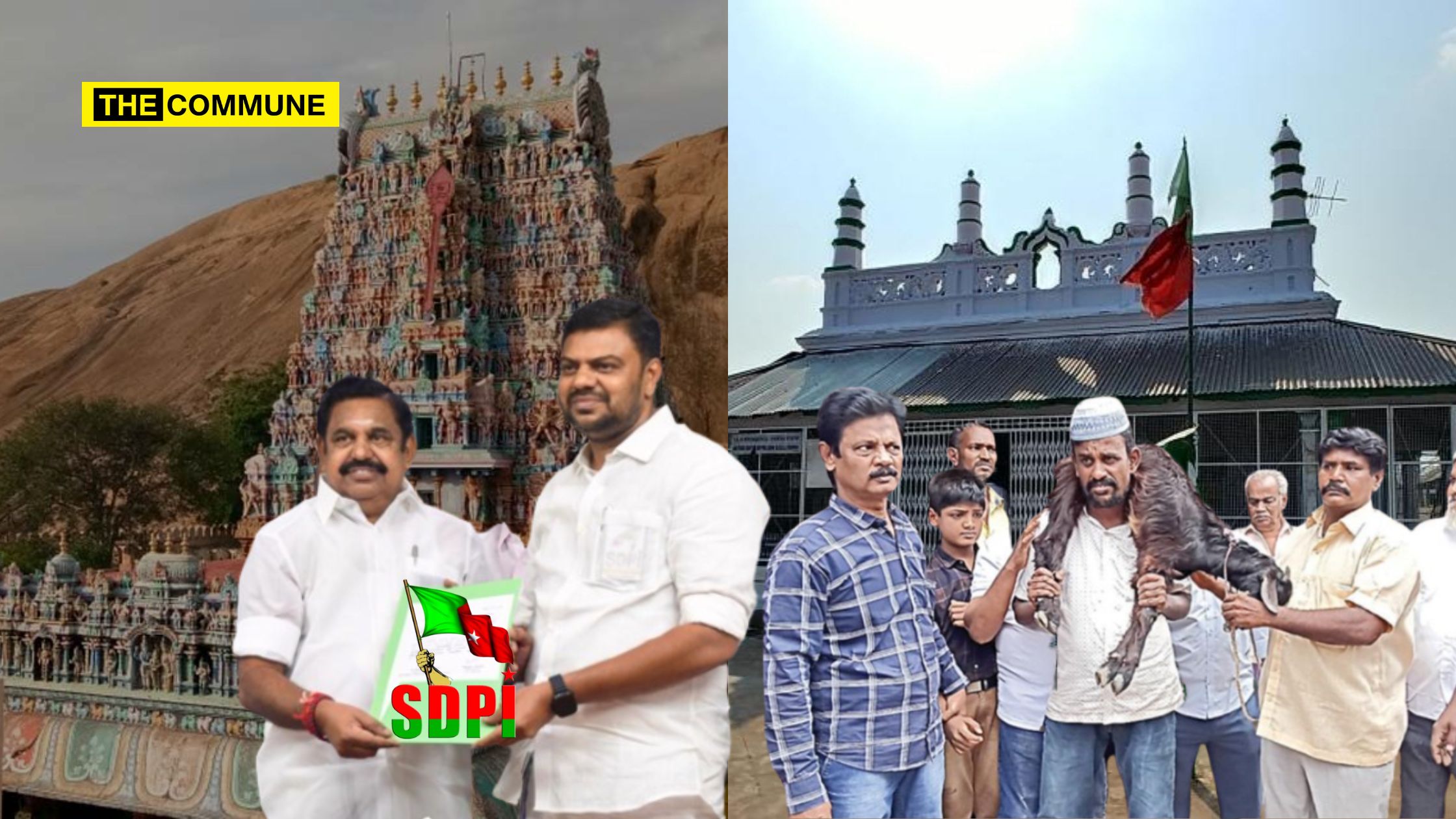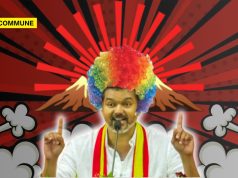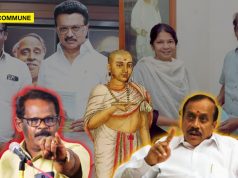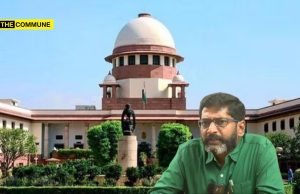
On 16 January 2025, Solaikannan, the Madurai district president of the Indu Makkal Katchi (IMK), submitted an appeal to Police Commissioner Loganathan, urging him to prevent the Social Democratic Party of India (SDPI), an ally of the AIADMK and banned terror outfit PFI’s subsidiary from attempting to sacrifice animals on the sacred Thiruparankundram hill.
In his petition, Solaikannan’s outlined that the Thiruparankundram Subramaniya Swamy Temple hill in Madurai is an ancient site with a rich religious significance. For centuries, devotees have worshipped the hill, performing a girivalam (circumambulation) during every full moon.
At the summit of the hill, there is the Kashi Vishwanath Temple, a lamp post, and a sacred Kallathi tree. During British rule, the First Additional sub Court had ruled that “the owner of the Thiruparankundram hill is Subramania Swamy temple.” Since 2011, an organization called SDPI has been raising issues with erecting a flag near the lamp post on Thiruparankundram hill. In recent days, the police have intervened to stop individuals claiming that the hill belongs to them and that they have the right to sacrifice goats, cows, and chickens there. This group has protested in a manner that has even threatened the police.
In the Tamil Nadu Assembly, it was stated that there is no prohibition on holding prayers on the hill and that the group could approach the court to request permission for animal sacrifices. They have declared their intention to defy the ban and proceed with the sacrifices on the hill the following day.
Solaikannan concluded that permission should not be granted for such actions, as it would undermine the sanctity of the Saivite sacred hill. To protect the Jain temples and inscriptions located around the hill, he suggested that the entire area should be placed under the jurisdiction of the Archaeological Department.
About Thiruparankundram Murugan Temple And The Controversy
On December 27, 2024, tensions arose at the Thiruparankundram Murugan Temple Hills when a group of individuals attempted to bring goats and roosters to a hilltop dargah for ritual sacrifices. The area, sacred to Hindus for housing the Murugan Temple—one of the six holy abodes (Arupadai Veedu) of Lord Muruga—was declared off-limits for such activities by the police. Syed Abu Dahir, a resident of Malaiyadipatti, along with his family, was stopped by authorities at the base of the hill, sparking protests from over 20 local Muslims in solidarity.
On January 5, 2025, a larger gathering of Muslim protesters at the hill demanded access to the mosque for prayers. The police denied their request, leading to heightened tensions and a brief altercation. Days later, on January 17, 2025, during the Santhanakoodu Festival, social media posts began circulating about an “Equality Feast” (Samabanthi Bhojan) allegedly planned at the hilltop dargah, where animal sacrifices would take place. Anticipating potential communal tensions, police implemented strict measures, including barricades and inspections, to prevent the transport of animals or meat to the hill.
When informed that animal sacrifices were prohibited, members of the dargah Jamath and other groups staged protests, raising slogans that disrupted the region’s peace.
The incident rekindled a long-standing dispute over the historical and cultural significance of Thiruparankundram. Renowned for its Murugan Temple and ancient Pandya-era rock-cut shrines, the hill is also home to a dargah reportedly established during the Madurai Sultanate’s rule. According to local claims, the dargah was built in honor of Sikandar Zulqarnain, mentioned in Islamic traditions, who purportedly arrived in Madurai during the Sultanate’s reign.
Hindu groups argue that under the guise of religious festivals, parts of the hill have been systematically encroached upon over time. They cite historical rulings, including one by the London Privy Council, affirming the hill’s ownership by the Subramanya Swamy temple and prohibiting any expansion of the dargah. Activists have repeatedly called for government intervention to protect the hill’s cultural and religious sanctity, alleging that appeasement politics by the Tamil Nadu HR&CE Department have exacerbated the issue.
Historical accounts further reveal that Hindu practices, such as lighting the Karthigai Deepam atop the hill, were discontinued during British rule and never reinstated post-independence. This period, activists allege, saw increased Islamic presence on the hill, including the placement of green crescent flags and the construction of the dargah.
The recent incidents have reignited debates over the hill’s rightful ownership, its historical importance, and the need to preserve its sanctity amidst competing religious claims.
(With inputs from Dinamalar)
Subscribe to our channels on Telegram, WhatsApp, and Instagram and get the best stories of the day delivered to you personally.




